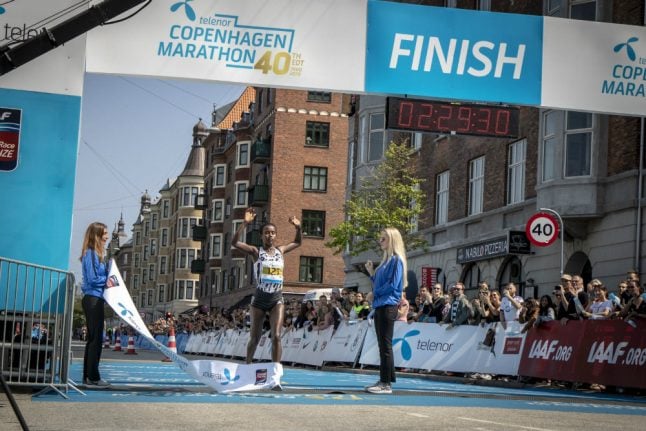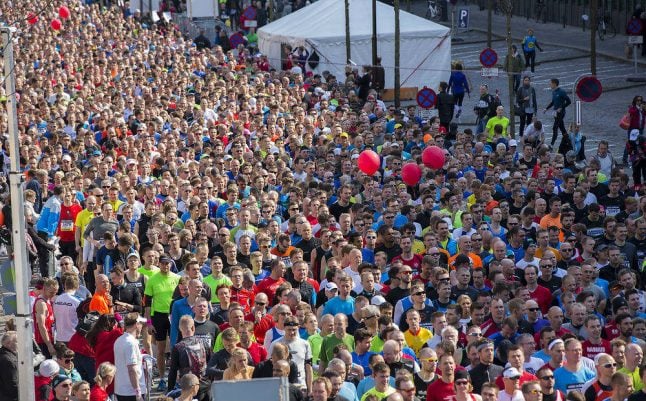A new course record was set in her field by Etalemahu Zeleke Habtewold, who won the women's race, while Jackson Kebet Limo of Kenya smashed the course record for the men with a time of 2:09:54.
Limo, 31, subsequently told the Copenhagen Marathon website that the victory represented the most important win in his career.

Jackson Kebet Limo won the men's section. Photo: Ólafur Steinar Gestsson / Ritzau Scanpix
Prior to the race, event organisers reported that over 13,000 amateur runners were registered to take part, beating the previous record participation from 2010.

Runners line up at the start of the marathon. Photo:Ólafur Steinar Gestsson / Ritzau Scanpix

Photo:Ólafur Steinar Gestsson / Ritzau Scanpix
As the course snaked through six of Copenhagen's neighbourhoods, the city's residents, helped by a series of entertainment 'power zones' organised by the event, made sure of a lively atmosphere to help push the runners towards their goal.
 Photo:Ólafur Steinar Gestsson / Ritzau Scanpix
Photo:Ólafur Steinar Gestsson / Ritzau Scanpix
Video: Ester Rose Wadsworth

Photo: Sparta/Telenor Copenhagen Marathon

Photo: Camilla Hylleberg Photography/Sparta/Telenor Copenhagen Marathon
An overcast start to the morning quickly developed into a warm, early summer day, with temperatures reaching towards the 20s in degrees Celsius pushing runners to their limits towards the end of the 42.2-kilometre course.
 Photo: Camilla Hylleberg Photography/Sparta/Telenor Copenhagen Marathon
Photo: Camilla Hylleberg Photography/Sparta/Telenor Copenhagen Marathon
The Local was also represented in the event, with Denmark editor Michael Barrett finishing a tough race in just under 4 hours.
 Photo: Camilla Hylleberg Photography/Sparta/Telenor Copenhagen Marathon
Photo: Camilla Hylleberg Photography/Sparta/Telenor Copenhagen Marathon
READ ALSO: What you need to know about the Copenhagen Marathon



 Please whitelist us to continue reading.
Please whitelist us to continue reading.
Member comments